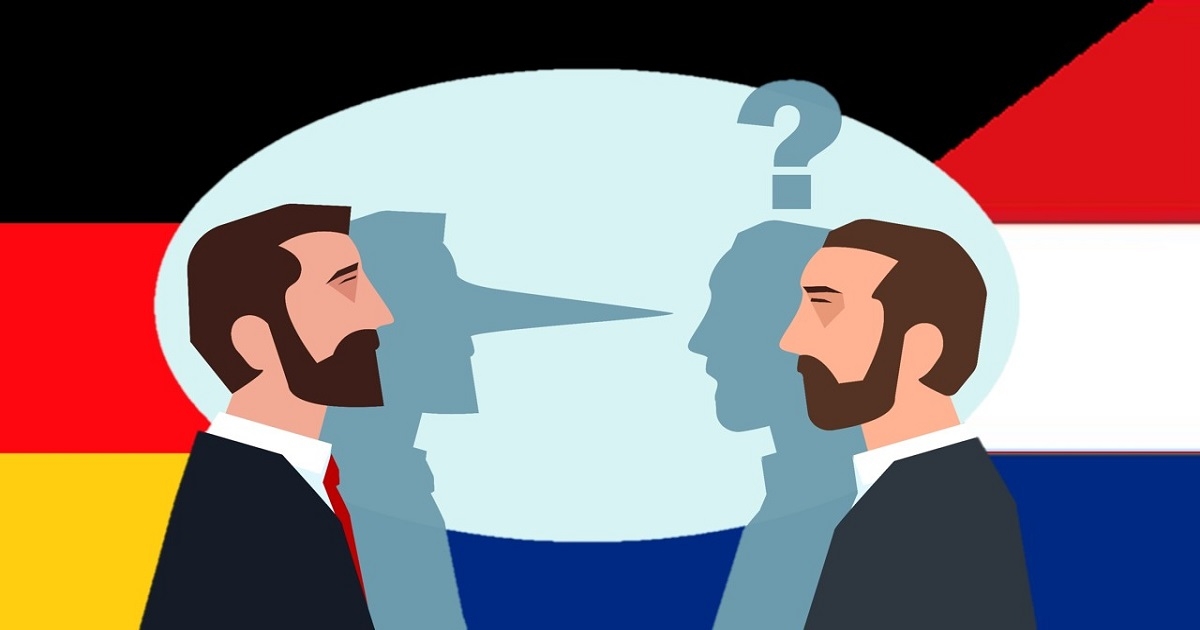False friends: Dutch and German
During the last summer school I heard that some students were a bit jealous of the German students. They say:
“It is much easier for them to learn the language and they don’t need to put in the same kind of effort.”
This is partially true. But the similarities are not always an advantage. The German students have to deal with a lot of false friends.
What are false friends?
False friends are words from different languages that sound or look the same, but have a totally different meaning.
You can always try to slip in a German word. There are enough similar words. But sometimes it can end up a bit awkwardly.
Let’s take a look at some of the most confusing false friends.
Verstaan – verstehen
Verstehen in German means to understand. Verstaan in Dutch, means to hear.
- Ik versta je niet.
This means that you can’t hear somebody, maybe because the phone isn’t working properly.
- Ik begrijp je niet.
This means I don’t understand you.
See – zee
This is a famous false friend, but still really confusing.
When Germans are talking about ‘die See’, they are talking about the lake, which in Dutch is ‘het meer’. ‘De zee’ for the Dutch is ‘the sea’ in English and in German, you probably saw this one coming, is ‘das Meer’.
Dutch and German have the same origin and the first meaning of both Meer and See was still water or large body of water.
Bellen – bellen
If you want to call someone, in Dutch you can say,’ Ik ga mijn broer bellen’. If you said bellen in German you would mean barking. Barking like a dog. So if a German person were to say he ‘gebeld’ the whole morning, he would have been barking the whole morning.
Doof – doof
Doof in Dutch is deaf in English. But in German if you want to say that someone is deaf, don’t say doof. Doof in German means stupid, taub is the word you’re looking for here.
Slim – schlimm
‘Slim’ is a word that creates a lot of confusion. Not only between English and Dutch, but also between German and Dutch. The Dutch meaning of ‘slim’ is smart or intelligent. In German something ‘schlimm’ means ‘bad’.
Wie – wie
This is also a very confusing ‘friend’. ‘Wie’ in Dutch means ‘who’. In German ‘wie’ means ‘how’. Looks similar, means something completely different.
Fahren – varen
A typical mistake German people make when speaking Dutch. ‘Ik ben naar huis gevaren.’
Well this is possible, but you probably mean something else. ‘Fahren’ means ‘to drive’ in German whereas ‘varen’ in Dutch means ‘to sail’. Obviously, you do this on a boat. And while The Netherlands is full of rivers, canals and more, most of the time people are driving, ‘rijden’ in their cars or on bicycles.
Eng – eng
In Dutch eng means scary. As in
‘Dat is een horror film, dat is een enge film!’ (That’s a horror movie, it’s a scary movie)
‘Eng’ in German however means ‘narrow’.

Bart de Pau
online Dutch teacher & founder of the Dutch Summer School & Dutch Winter School



